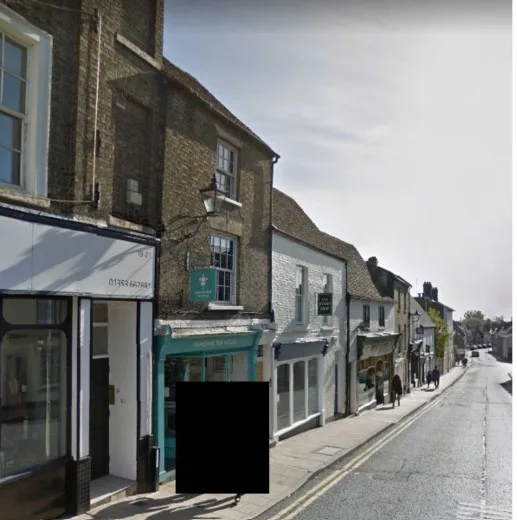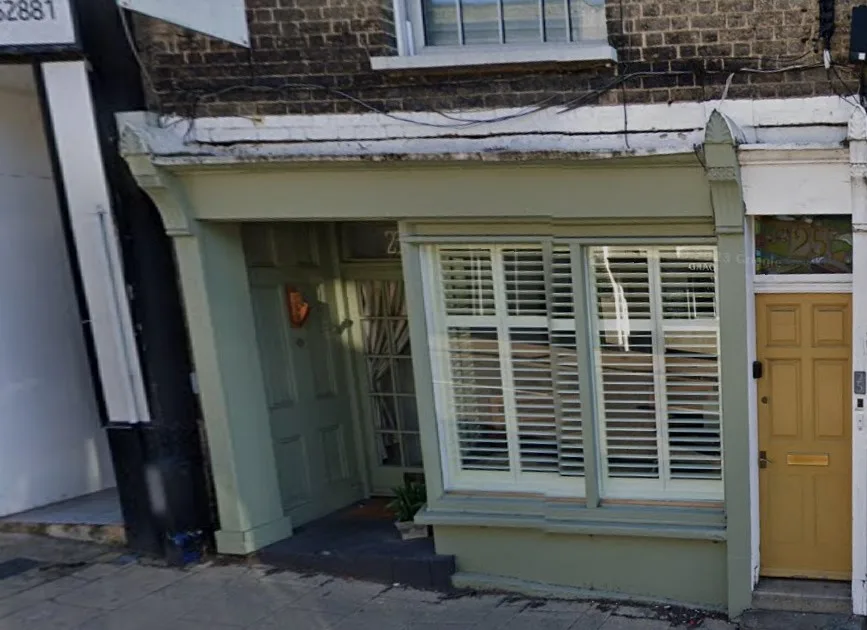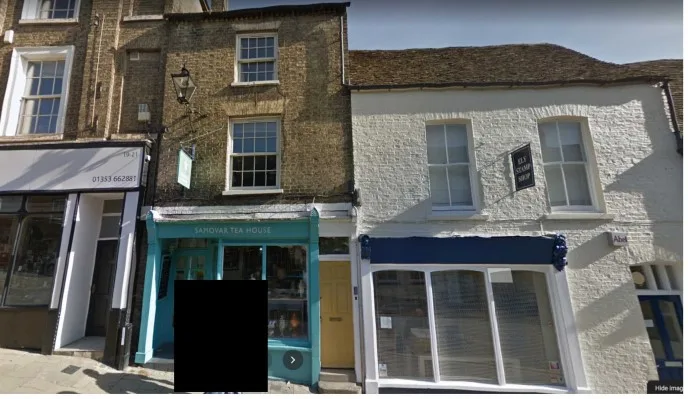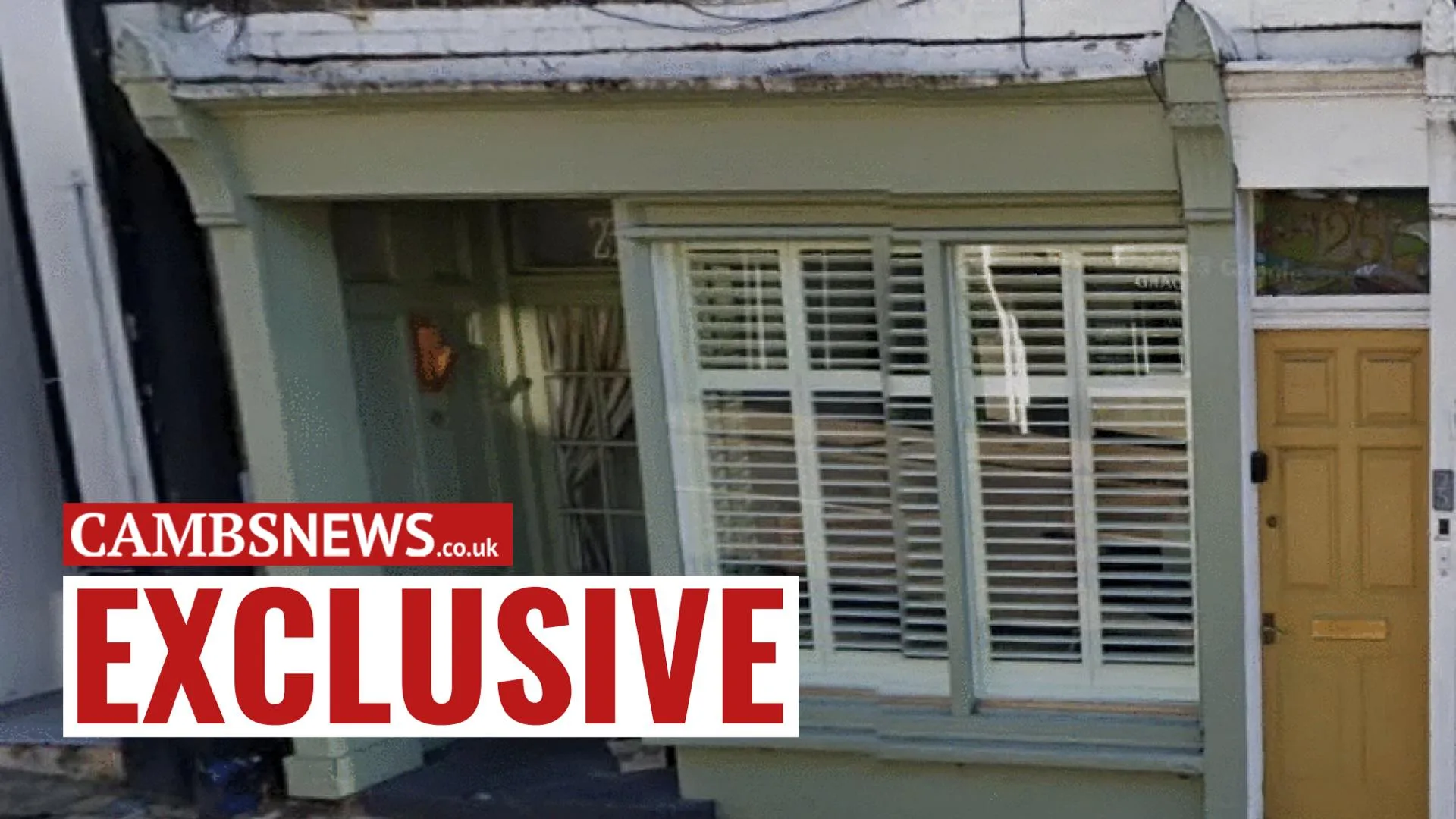A council won its planning battle to prevent an 82-year-old woman, who has run a business in Ely for 40 years but is now going blind, from converting her ground floor shop to enable her to live there.
East Cambridgeshire District Council refused Jenny Burgoyne permission for change of use of the former Samovar tea rooms in Forehill, Ely.
Now the Planning Inspectorate has upheld enforcement action by the council, ordering Ms Burgoyne to “remove all beds and associated residential paraphernalia that are not ancillary to the primary use of the property as a shop”.
She has been a given a year to comply with the notice.
Her architects Freeman Brear of Ely submitted the first application to the council, pointing out that Ms Burgoyne needed ground floor accommodation “because she is going blind”.
They also pleaded her case to be “relieved of the burden of business rates that she would be exempt from paying if she was a small business.
“The conversion required to the unit is minimal and does not obviate the future use of the unit as commercial should the need arise.

“At the moment the pressing economic need is that she requires ground floor accessible accommodation and to be able to support herself financially”.
Freeman Brear told the council last year that for more than 12 months she has tried to sell her building for the amount required to provide herself with accessible accommodation and to maintain the level of income she would achieve from rent, but she has failed to secure a buyer.
“The applicant is going blind and requires suitable accommodation,” said Freeman Brear.
“This is available within her own property and will ensure that she does not become a dependent of the local authority. so long as she is able to maintain her income and live in safe, accessible accommodation. “
The firm added that if Ms Burgoyne “was not visually impaired and not suffering from degenerative illness, she would be able to stay in the first-floor apartment of the building she owns and support herself on the income available from renting her shop unit, in the assumption that a suitable tenant could be found.
“However, she needs safe, accessible accommodation and will be able to support herself financially by living safely and securely in the ground floor unit and renting the first-floor apartment.
“The question that needs to be asked is: for what sustainable reason should planning permission not be granted in these circumstances?”
The firm told the council that the shop became vacant due to the implications of the global pandemic when the Samovars cafe closed, and the business owner surrendered their lease.
“This had severe financial implications for the applicant who could not benefit from government financial assistance available to the cafe business,” they said.
“The social context of this property is that this building has been the home and business of the applicant for more than 40 years.
“Following her retirement from the successful business she ran in the shop unit, she has lived in the apartment above the shop and the income from the rental of the retail unit has been her pension,” said Freeman Brear.

“The loss of this income along with the diagnosis of a degenerative health condition has left her very vulnerable.
“The building had been up for sale for over 12 months, but the applicant had been unable to secure a buyer that will enable her to find suitably located single-storey accommodation and provide her with a similar income to that she which she received from the rental of the shop.
“The obvious solution became clear that if small alterations were made to the interior of the shop, it would enable her to live securely in her building and still benefit from the income provided by renting the remainder of the property which has become inaccessible due to her progressive illness.”
Planners officers from East Cambs Council claimed that Ms Burgoyne’s application for change of use contained “insufficient information to evidence that the loss of the commercial premises would not impact the area”.
Chris Baxter of the Planning Inspectorate ruled that “the appeal is dismissed; the enforcement notice is upheld, and planning permission is refused”.
He said the main issue is whether the proposal would result in an unnecessary loss of a commercial community facility.
“Correspondence from a marketing agent confirms that they commenced marketing the appeal property from 29 July 2020,” he said.
“There are no details however of active marketing, including registering with multiple commercial property agents, advertising of the premises, and details of any offers or interest from prospective tenants or buyers.
“It has not been adequately demonstrated that all reasonable efforts have been made to sell or let the property at a realistic price for at least 12 months.
“I note that the appellant has owned the property for more than 40 years with a business being ran at ground floor whilst occupying the residential unit above, and since retiring the appellant had used the rental income from the commercial unit as part of her pension.
“It has been described that the pandemic has led to financial hardship with several other units in the area being empty.
“There is no compelling evidence before me, such as financial business statements, to demonstrate that the appeal premises is not financially viable as a commercial operation.
“Accordingly, the change of use of the property to residential is an unnecessary loss of a commercial community facility which has a harmful effect on the vitality and viability of the Ely Secondary Shopping Frontage.”
Mr West said there have minimal structural alterations to the ground floor of the premises and reverting back to a commercial use would not be complicated.
He said he had taken account of Ms Burgoyne’s age and the requirement to deal with the issue sympathetically and allowing the continued use of an accessible home.
“The enforcement notice provides a 12-month period for compliance which would be ample time for the appellant to arrange alternative residential accommodation,” he said.
“It is stated in the evidence that the first-floor residential unit is in the ownership of the appellant.
“There is no compelling justification to indicate that the appellants age and health warrants a specific need for the ground floor premises to remain as residential.”
In conclusion he added: “I recognise that the failure of this appeal could affect arrangements for the appellant.
“Having regard to the circumstances drawn to my attention, this would represent an interference with their rights under Article 8 of the European Convention on Human Rights, as incorporated by the Human Rights Act 1998.
“However, having regard to the legitimate and well-established development plan policies which aim to safeguard retail and commercial community facilities, in this case I consider that greater weight is attached to these.

“Dismissal of the appeal is therefore necessary and proportionate, and it would not result in a violation of the human rights of the appellant.
“For all the above reasons, I conclude that the use of the ground floor premises as residential does result in an unnecessary loss of retail and commercial community facilities from the Ely Secondary Shopping Frontage and the harm this causes outweighs the benefits described above.”
When the change of use was advertised, only one person objected.
“Forehill is home to a number of independent businesses that contribute to a healthy diversity of traders,” said a letter to East Cambs planners.
“There is a high demand for retail space in this area of Ely and a very weak case for changing the use of this space. In fact, it could set a dangerous precedent at a time when traders and the high street is under attack.”
























